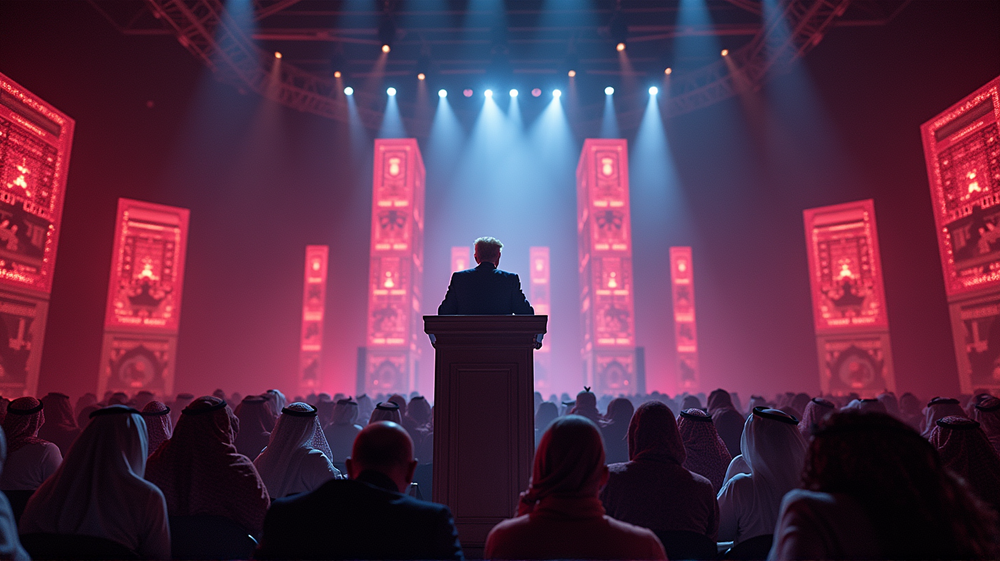A New Chapter Begins
In a striking proclamation that could reshape American foreign strategy, Donald Trump, during his visit to Riyadh as part of his Middle East tour, issued a firm rebuke against interventionalists on both ends of the U.S. political spectrum. Emerging from the diplomatic grandeur of Saudi Arabia’s futuristic landscapes, Trump’s bold rhetoric signals a calculated stride away from the long-standing doctrines that have governed American foreign interactions for decades. “The gleaming marvels of Riyadh and Abu Dhabi,” he declared, “were not created by the so-called ‘nation-builders,’ ‘neocons,’ or ‘liberal non-profits.’”
A Dismissal of the Past, An Embrace of Change
In his characteristic direct manner, the president emphasized that the complex societies of the Middle East require respect and understanding, not the abrasive hands of far-off interventionalists. As stated in The Independent, Trump aims for a departure from the status quo, a notion echoed in his decision to terminate military strikes against the Houthi rebels and lift sanctions in regions previously contentious with American policy.
Internal Shifts Reflect Broader Strategy
Back in Washington, the ripple effects of Trump’s vision are felt within his own administration. The ousting of Mike Waltz, viewed as a foreign policy hawk, represents an internal realignment towards a team resonating with Trump’s evolving strategy. Concurrently, formal talks with Iran signify an engagement seeking productive resolutions over confrontational postures, a radical shift from his previous “maximum pressure” stance.
Navigating Unsteady Waters: Ukraine and Beyond
Across the European front, Trump’s dealings in Ukraine underscore a pragmatic approach aimed at resolving conflicts through negotiation rather than munitions. President Zelensky’s impending peace talks with Russian delegates in Turkey arise amidst Trump’s critique of American arms aid, marking a potential path towards resolution in a war so profoundly costly since its onset in 2022.
Challenges and Opportunities Ahead
Indeed, Trump’s ambitious move from traditional pathways to innovative diplomacy carries significant implications for international dynamics. While the internal cacophony of domestic policies still looms heavy, Trump’s dealings in the Middle East and Eastern Europe present monumental opportunities for breakthroughs aligned with his emblematic deal-making prowess.
How Trump navigates these intricate waters could ultimately shape his legacy, defining a distinctly new period in U.S. foreign engagement for years to come.












